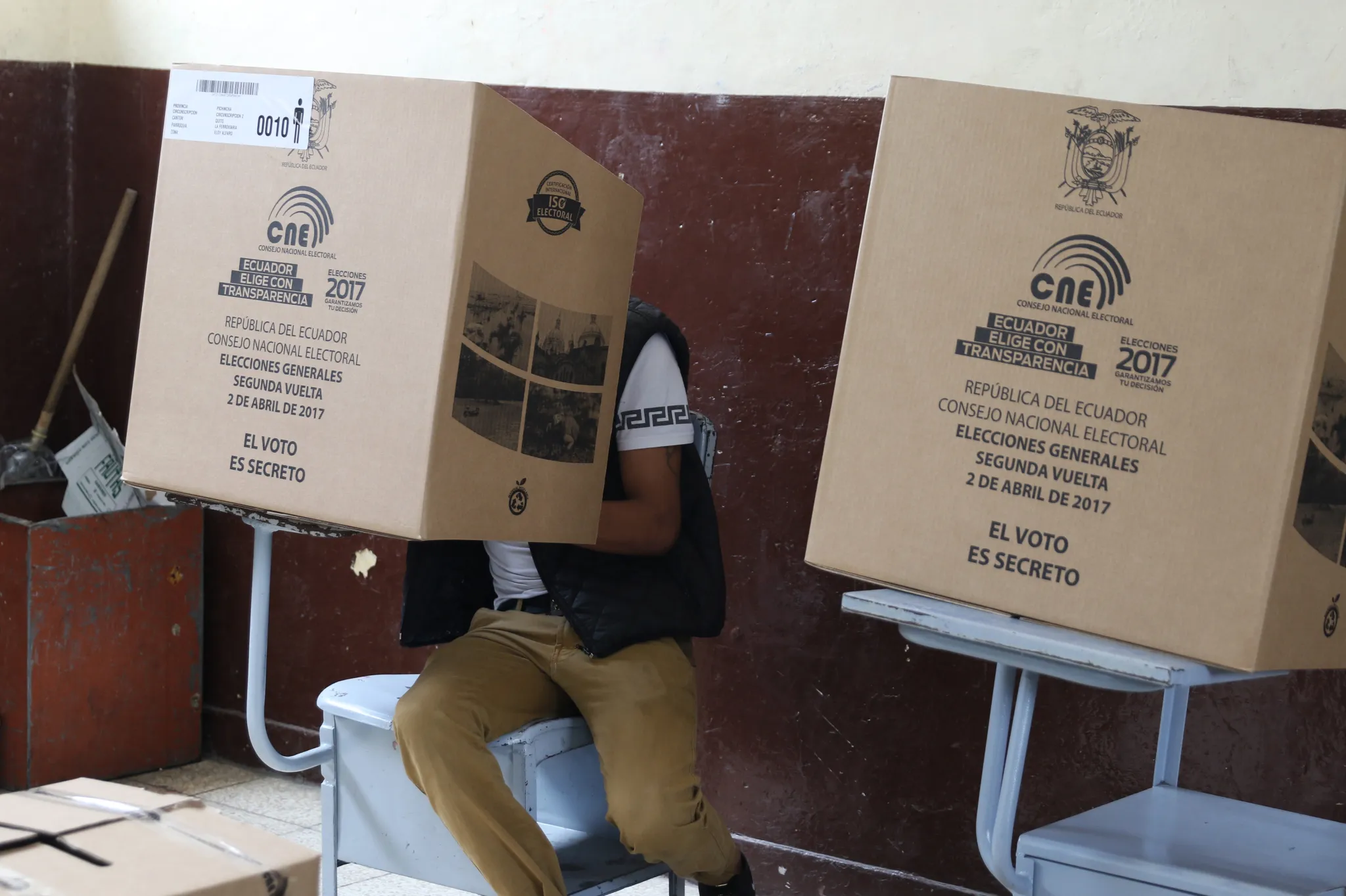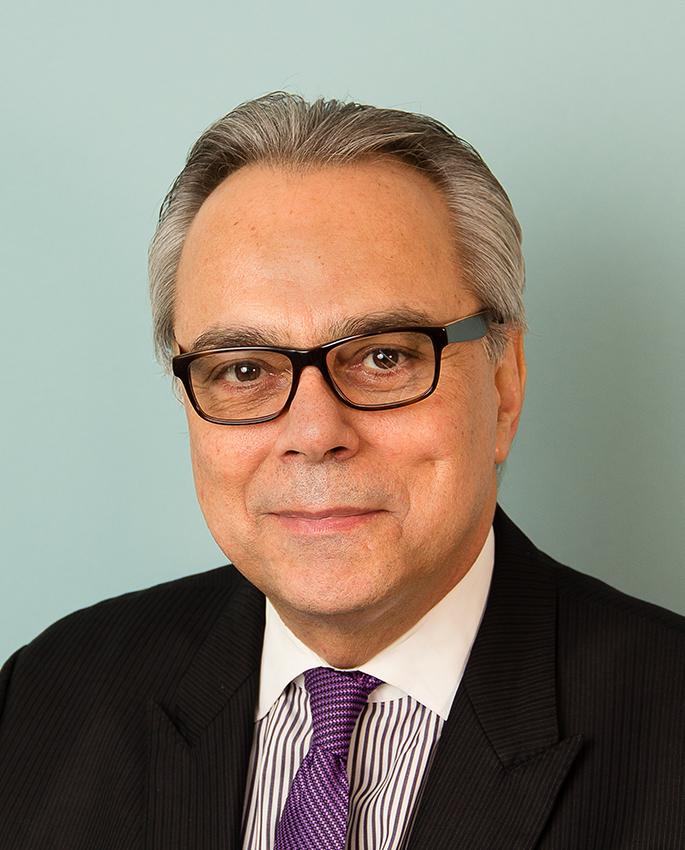Elections in Latin America: Governments whose support is volatile in societies that are divided

While Latin Americans struggle to leave behind the bleak year of 2020 they’re dealing with a pandemic that has left more than 550,000 dead; their economies are trying to recover from the worst recession in a century; and they are going through a new super-cycle of elections that began with Bolivia’s October 2020 general elections and that will not culminate until late 2024. During this period all the Latin American countries except Cuba will go to the polls to elect or re-elect, by direct popular vote, their respective presidents and legislators.
This year there will be 15 elections: five presidential and legislative elections (in Ecuador, Peru, Chile, Nicaragua, and Honduras); three exclusively legislative elections (in El Salvador, Argentina, and Mexico); elections for the constitutional assembly in Chile; and several local or regional elections in six countries (El Salvador, Bolivia, Chile, Mexico, Paraguay, and Venezuela).
This intense and decisive electoral agenda will take place in a complex regional context characterized by a severe pandemic, a brutal economic contraction (-7.7% average regional decline in GDP in 2020, according to the United Nations Economic Commission for Latin America and the Caribbean, ECLAC), a major increase in poverty (40 million new poor), unemployment, and informality, highly indebted governments, and an irritated citizenry, fearful and fatigued, who will take to the streets and the polls to call for timely and effective measures of protection vis-à-vis the pandemic and its economic and social fallout. Projected regional growth, on the order of 3.5% of GDP in 2021, will not be enough to alleviate the economic destruction suffered or reverse the setbacks in human development.
Old and new cycle
The new cycle has both similarities and differences with respect to the previous electoral super-cycle of 2016-2019: Protest votes against the parties in power, a high degree of polarization, political fragmentation, the growing use of second round ballots to determine the winner in presidential elections, and an ideological heterogeneity with tendencies that will continue to be present in contemporary politics.
Re-election of the incumbent president, by way of contrast, is becoming less common. The defeat of Mauricio Macri and the political-electoral crisis that thwarted Evo Morales’s attempt to perpetuate himself in power in Bolivia, both in 2019, evidenced the difficulty securing a second consecutive term today. This phenomenon will open up space to new faces and also to political figures of long standing who have not, as yet, been elected to the highest office. It would be a positive development if this renewal of the leadership of the different political forces allows the return of women to the presidency in some countries, for at this time all of the presidents of Latin America are men.
As a result of the accelerated attrition that many of the governments of the region are suffering and the protest votes we will see greater alternation in power and short political cycles. Governments without clear majorities and whose level of support is volatile will reflect polarized and fragmented societies where reaching consensus on the issues of the day will become a complex task. The immediate challenge facing many presidents will require calibrating measures that address citizens’ needs while at the same time pursuing responsible fiscal proposals that enable them to access aid packages from international lending institutions, renegotiate with creditors, and attract investors. Those who fail risk seeing a resurgence of the social protests that we observed in late 2019.
What’s at stake
Clearly each country faces particular situations that will frame its elections.
On February 7 presidential and legislatives elections will be held in Ecuador at a very tough time economically, and with a large part of the electorate undecided –30% to 60%, according to most of the polling. It is not clear whether the election will be decided on the first round or will require a second one. The dispute is primarily between a turn to conservatism led by banker Guillermo Lasso and the return of the pro-Correa forces in the person of the young former cabinet minister Andrés Arauz. Almost two weeks before the elections Arauz was leading the polls, followed by Lasso, while Yaku Pérez, the indigenous leader from the Pachakutik party, was in third place.
At some time in April, May, or June Peru will select a new president while celebrating the country’s bi-centennial. The new president will find a country mired in an institutional crisis due to the constant clashes between the executive and the legislature and the high levels of corruption. The elections will be held in a context of citizen apathy and highly dispersed support for about 20 presidential candidates, many of whom find there are more who reject them than who sympathize with their aspirations. For the time being, George Forsyth, former soccer player and former mayor of La Victoria, is leading the polls; while his level of support is not so high, it is double the support for Keiko Fujimori, Julio Guzmán, and Verónika Mendoza, who appear to be best positioned to move on to a second round. Yet the election is still open-ended, and one can’t rule out a last-minute surprise.
Throughout 2021 Chile will be a laboratory for studying electoral phenomena, with municipal, regional, legislative, and presidential elections, but even more important elections for members of the constitutional assembly. Under the wing of the recent social upheaval Chile will be renewing practically all its elected officials and mostly likely will also adopt a new constitution next year, in a test of its institutional capacity to handle so much uncertainty. Nine months out from the presidential and legislative elections (to be held November 21) the polls reflect a large number of candidates, of whom mention can be made, for now, of Joaquín Lavin, Evelyn Matthei, and Felipe Kast on the center-right and right; Paula Narváez and Heraldo Muñoz on the center-left; Ximena Rincón on the center, and Daniel Jadue, Pamela Giles, and Beatriz Sánchez on the left.
Nicaragua has general elections scheduled for November 7, but it is not yet clear whether Daniel Ortega will seek to extend his 14 years in office or whether he will yield the candidacy to his wife and current vice president, Rosario Murillo. Unless there is an electoral reform in the coming months that offers genuine guarantees, the process will lack the minimal levels of electoral integrity, deepen the authoritarian characteristics of the current regime, and aggravate the political crisis.
Three weeks later (November 8) Honduras, which continues suffering the political effects of the 2009 coup d’état and the much-questioned re-election of Juan Orlando Hernández in 2017, will hold its presidential and legislative elections in a climate marked by tension and distrust.
El Salvador, Mexico, and Argentina will hold legislative elections in February, June, and October, respectively. In addition to their consequences for governability they will be an opportunity to gauge the political capital of presidents Nayib Bukele, Andrés Manuel López Obrador, and Alberto Fernández. Everything would appear to indicate that the first two will emerge stronger while the third may suffer a protest vote if the economy and pandemic don’t improve in Argentina. The role of the opposition parties in all three countries (coming together for the election and with credible proposals) will be a crucial factor in the results in all of these legislative elections.
Risks and challenges
It is looking like 2021 will be a complex year, with a high degree of uncertainty and any number of challenges in Latin America. The governments will have to successfully manage the pandemic and the vaccination campaigns; spur economic recovery; avoid another wave of protests; hold elections with integrity; and protect democracy.
The very full electoral agenda faces many challenges, though the experiences of 2020 show that it is indeed possible to hold elections with guarantees and good levels of participation in times of pandemic. Nonetheless, there is a risk of clientelist use of the delivery of social assistance or the distribution of vaccines during the election campaigns.
The short political cycles entail a second challenge. It will be necessary to learn to live with frequent alternation in power and greater ideological heterogeneity, which makes governing more complicated, particularly the possibility of reaching agreements that make it possible to rewrite social contracts and adopt the long-term strategic policies that the region urgently needs. This will require making institutional adjustments and moving towards a renewed presidentialism or a semi-presidential system.
Yet the greatest risk is that as a result of citizen discontent and lack of trust in the elites and the traditional parties this new super-cycle of elections may usher in greater instability and volatility and facilitate the rise to power of new populist leaders with the ability to interpret points of sensitivity or anguish and translate them into seductive electoral promises. In the face of this serious threat it is urgent to join efforts to keep the populist virus from prevailing at the polls and endangering democracy.




